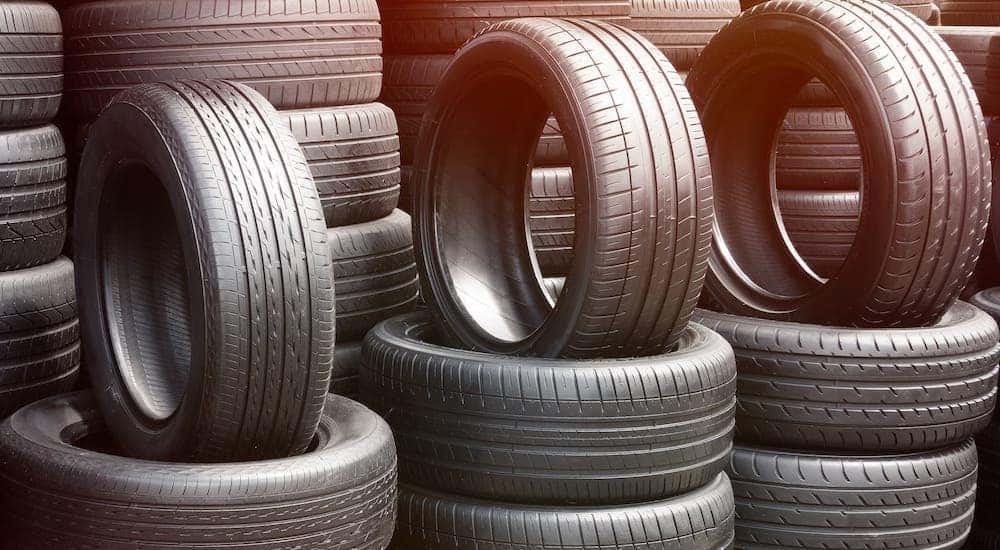Conserve Big with Mopar Tire Service Specials in Morris: Limited Time Offers
Conserve Big with Mopar Tire Service Specials in Morris: Limited Time Offers
Blog Article
Tire Service: Understanding Tire Pressure Monitoring Systems
Understanding Tire Stress Monitoring Equipments (TPMS) is an important facet of preserving optimum car efficiency and safety and security on the roadway. With developments in auto innovation, TPMS has actually come to be a common feature in contemporary lorries, offering real-time details on tire pressure levels.

Value of TPMS
The importance of Tire Pressure Tracking Equipments (TPMS) lies in their ability to improve lorry safety and performance with real-time monitoring of tire stress degrees. Keeping the correct tire stress is important for ensuring optimum handling, stopping, and general safety and security of a vehicle. TPMS provides drivers with prompt comments on any type of overinflated or underinflated tires, allowing for timely modifications to be made.
Elements of TPMS
Making up different necessary elements, a Tire Stress Monitoring System (TPMS) works as an innovative safety and security feature in contemporary automobiles. The major elements of a TPMS consist of sensors, a control component, and a caution indication. Sensors are typically located in the tire shutoff stem or connected to the wheel setting up, where they measure tire stress and send data to the control module. If it identifies considerably low pressure in any of the tires, the control component procedures this details and triggers a caution. The warning sign, often a symbol on the dashboard, notifies the vehicle driver to check the afflicted tire or tires. Some progressed TPMS designs additionally display the actual tire pressure readings for each tire, giving chauffeurs with real-time information to guarantee ideal tire performance and safety. By keeping an eye on tire pressure continually, TPMS helps stop mishaps, decreases tire wear, and boosts gas efficiency, making it an important element for car safety and efficiency.
Sorts Of TPMS

On the other hand, indirect TPMS counts on the vehicle's wheel speed sensors to check tire stress. This system spots underinflation by comparing the rotational rates of the wheels. Indirect TPMS is less expensive than direct TPMS, as it uses existing sensing units within the vehicle.
While straight TPMS supplies more accurate analyses, indirect TPMS is less complex in layout and generally requires less upkeep. Both article systems have their advantages and restrictions, and the selection in between them usually depends on elements such as cost, vehicle make, and individual choice. Comprehending the differences in between these 2 sorts of TPMS can assist vehicle proprietors make notified decisions concerning tire maintenance and safety.
TPMS Upkeep Tips
Efficient maintenance of TPMS is vital for guaranteeing ideal performance and safety of your lorry. Regularly evaluating the TPMS sensing units for any type of damage or deterioration is vital. Guarantee that the sensors are tidy and totally free from particles that might disrupt their performance. Furthermore, it is recommended to check the sensing unit batteries regularly and change them find out as needed to assure precise readings. Conduct routine checks on the tire pressure degrees and compare them with the TPMS analyses to ensure they correspond. Alter the system adhering to the maker's guidelines if there are any type of disparities. Throughout tire turning or substitute, make sure that the TPMS parts are taken care of carefully to avoid any type of possible damage. Finally, if the TPMS alerting light brightens on the control panel, resolve the issue immediately by examining the tire pressures and the overall system for any kind of faults. By adhering to these upkeep ideas, you can extend the life-span of your TPMS and improve the security of your driving experience.
Advantages of Proper Tire Pressure
Preserving correct tire stress, as highlighted in TPMS Maintenance Tips, is crucial for gaining the many advantages connected with optimal tire stress levels. Among the key benefits of keeping the correct tire stress is boosted fuel efficiency. When tires are properly inflated, there is much less moving resistance, leading to much better gas economy. In addition, proper tire pressure ensures even tire wear, extending the life expectancy of the tires and advertising safer driving conditions. With the best tire pressure, automobiles additionally have much better handling and grip, especially in damaging weather. This can boost general driving efficiency and security for the chauffeur and guests. Maintaining optimal tire stress can add to a view publisher site smoother and a lot more comfortable trip by minimizing vibrations and noise triggered by underinflated tires. In verdict, the benefits of appropriate tire stress go past just tire durability; they include boosted gas efficiency, improved security, far better vehicle efficiency, and total driving convenience.
Final Thought
In verdict, recognizing tire stress tracking systems (TPMS) is important for preserving optimal tire pressure and making sure car safety and security. By recognizing the importance of TPMS, being familiar with its parts, recognizing the different kinds available, sticking to appropriate maintenance ideas, and realizing the benefits of maintaining correct tire pressure, drivers can boost their driving experience and lengthen the life-span of their tires. Appropriate tire stress is essential to safe and reliable automobile operation.

Report this page